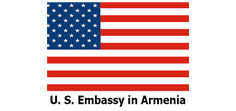On February 3, during the Parliamentary hearings on the blockade of the Lachin Corridor, Andranik Tevanyan, deputy of the “Armenia” faction, claimed that “unlike Georgia and Azerbaijan, only the RA authorities state that the Russian military presence is a threat to the region.”
“ In the region, only the RA authorities have stated that the Russian base in RA is a threat to RA security, while Georgia and Azerbaijan do not make such a statement,” he said.
According to Tevanyan, the authorities are circulating the provision that the Russian base is a threat to the security of Armenia, as “Azeris get triggered by it and attack Armenia.”
The Fact Investigation Platform checked a number of statements made by both Tevanyan and other figures during the hearings.
Tbilisi has expressed its opposition to the Russian military presence, including in Armenia
Official Tbilisi has always been critical of the presence of a Russian military base in Armenia. For example, during his visit to Armenia in 2010, the acting Foreign Minister of Georgia, Grigol Vashadze, expressed concerns about the Russian military base deployed in Armenia.
“Georgia has a sovereign right to comment on the presence of a Russian military base in the South Caucasus… We have five bases in Georgia, and believe me, it is a constant threat to our security, independence and sovereignty,” said Vashadze, recalling the year 1921, when the three South Caucasus countries lost their independence and became part of the Soviet Union.
Let us add that the process of closing down the Russian military bases in Georgia was completed in 2007. Until then, after the Rose Revolution of 2003, Georgia had already acquired the status of a candidate for NATO membership.
False statements by Hrant Bagratyan
During the hearings, former Prime Minister Hrant Bagratyan stated that the contents of the documents signed by Azerbaijan and Armenia are not known to the public.
“We know one document, dated November 9. By chance, the document of December 18, in which the Kapan-Tchakaten road was ceded to Azerbaijan, happened to appear in our hands. Besides, we don’t know what was signed on January 11, 2021. Nor do we know what was signed on November 26. They say arrangements. Is there a paper or not?” he said.
In fact, Bagratyan is mistaken, the documents signed as a result of the two meetings mentioned by the latter have been published.
Thus, on January 11, 2021, the leaders of Armenia, Azerbaijan and Russia met in Moscow. Following the negotiations, a statement was adopted comprising 4 clauses which was published on the RA Prime Minister’s website. And on November 26, 2021, during the meeting with the same participants, another statement was adopted which is also available on the Prime Minister’s official website.
Speaking about the statement of November 9, 2020, Bagratyan once again claimed that “it is not only Artsakh that we have given.“
“First of all, we established in clause 4 that the document is valid for 5 years, that is, 5 years later, two years left, the Lachin Corridor may not exist, as Azerbaijan may not agree to it. Under clause 9, we did not use the word corridor, we gave a corridor between the western regions of Azerbaijan and Nakhichevan through the territory of Armenia. There is no 5-year limit on this,” Bagratyan said.
However, the 5-year period mentioned in the November 9 statement does not refer to the validity of that document, but to the period of deployment of the Russian peacekeeping mission in the Lachin Corridor.
Clause 4 states that “the peacekeeping contingent of the Russian Federation shall stay for a period of 5 years, with further automatic 5-year extensions, where 6 months prior to the expiry of the time period none of the Parties declares of its intention to terminate the application of the provision.” This applies neither to the status of the Lachin Corridor nor to the general statement.
As for the clause of providing a road through Armenia between the western regions of Azerbaijan and Nakhichevan, as Bagratyan himself points out, there is no such term as corridor. Armenia will simply unblock the transport routes between the western regions of Azerbaijan and Nakhichevan.
During the government session in August, 2022, Nikol Pashinyan stated that Azerbaijan can cross the border of Armenia at several points and execute traffic to Nakhichevan.
Lusine Voskanyan

 FACTOMETER
FACTOMETER










